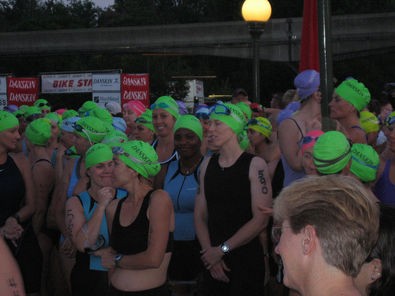It’s not just a color anymore, but identifies an ecological movement that has risen to the forefront of cultural awareness in recent years.
It’s a mentality and way of life that attempts to reduce an individual’s and society’s use of the Earth’s natural resources.
It’s often referred to as “sustainable living” or “ecological living,” which involves reducing our carbon footprints by such things as altering methods of transportation, energy consumption, and diet.
Being green means living your life in a way that is consistent with sustainability in which the Earth’s resources are used at a rate at which they can be replenished. Being green is being respectful of humanity’s symbiotic relationship with the Earth’s natural ecology and cycles. By minimizing our “ecological footprints” — the extent to which we create an environmental impact — we hope to preserve the Earth for future generations of human beings and other life.
It’s not easy being green, but there are a wealth of resources aimed at educating us about ecological living, and offering practical guidance in this way of life. For example, there is Wikia Green, which is a database of resources related to living green. The singular most practical site I have come across about living green is The Fun Times Guide to Living Green, written by Jeffrey Davis.
So, what does this have to do with the sport of triathlon and you as a triathlete?
Ecological Footprint of Triathlons
For me as a triathlete, I began thinking about this issue while doing a triathlon at a state park in Tennessee.
During the biking portion of the event, a triathlete ahead of me tossed his empty Gu packet to the ground. I wondered if you added up all the sports nutrition packaging tossed to the ground during a triathlon, and multiplied that number by every triathlon that took place across the globe in on year, how large of a landfill would you need to bury all that waste.
Or, what about the hundreds of thousands of plastic water bottles that are given out in triathlon events each year?
Or the hundreds of thousands of plastic goodie bags filled with paper advertisements and event promotion pieces?
There’s no question that the sport of triathlon leaves an ecological footprint.
Sporting events, in general, leave a significant ecological footprint.
Green-Friendly Sports
 Increasingly, race directors and organizers are going green.
Increasingly, race directors and organizers are going green.
This past October, runners at the ING Hartford Marathon rehydrated at a 40-person, solar-powered water bubbler engineered specifically for the event. The marathoners, half-marathoners and 5K finishers then filled up on Connecticut grown apples, regionally-based Stonyfield Yogurt, locally made apple crisp or a variety of 100% organic foods including bananas and salads.
These efforts — in addition to aggressive recycling, fuel cell bus transportation, recyclable sugarcane water cups on the course and use of solar-powered generators — add up to what race director Beth Shluger hopes will be the “healthiest marathon in the country.” The 40-person water bubbler helped eliminate 10,000 water bottles.
The green mentality is growing in endurance sports.
ReSport Standards & Qualifying Events
The Council for Responsible Sport (ReSport) was created in 2007, and provides an independent, comprehensive certification for sustainable athletic events.
By defining realistic objectives and providing a framework for achieving them, ReSport enables event directors to incorporate environmental responsibility into their events while informing consumers which events adhere to these standards.
The standards are broken down into 6 primary areas: Waste, Climate, Equipment and Materials, Community and Outreach, Health Promotion, and Innovation. “Credits” are earned by applying these standards, qualifying an event as a ReSport event. In 2008, triathlon events that qualified included:
-
CB&I Triathlon (Woodlands, TX)
-
Keuka Lake Triathlon (Keuka Park, NY)
-
Philadelphia Insurance Triathlon in Fairmount Park (Philadelphia, PA)
-
Deschutes Dash (Bend, OR)
-
Boulder Peak Triathlon (Boulder, CO)
-
Urban Epic (Portland, ME)
-
Oregon Trout City of Portland Triathlon (Portland, OR)
-
San Francisco Triathlon (San Francisco, CA)
-
USA Triathlon Age Group Nationals (Forest Grove, OR)
-
Peregrine Charities Triathlon (Waterloo, IA)
-
Land Rover Pumpkinman Triathlon (Las Vegas, NV)
-
Marin County Triathlon (San Rafael, CA)
Athletes Are Going Green Too
 Athletes of all kinds are going green.
Athletes of all kinds are going green.
For example, here are several tips
for becoming a “green runner.”
Triathletes are training, racing, promoting, and living green. Professional triathlete Chris Lieto officially launched The Green Athlete campaign while attending the 2008 Ironman California 70.3 event in Oceanside, CA. The campaign provides information, research, and resources for athletes committed to going green.
Organizations such as Soles4Souls give athletes more green options. In this case, “recycling running shoes” by donating running shoes instead of tossing them in the trash.
Are You A Green Triathlete?
What would it mean for you to become a green triathlete?
What follows are several “green steps” I offer to you as a starting point.
Here’s the challenge: pick 3 “green steps” off the list and incorporate them into your life as a person and triathlete.
Jim’s Triathlete Green Steps
Sign the ReSport Athlete Petition.
Read The Fun Times Guide to Living Green in the month of January.
You do a lot of cycling, right? Use your bike twice in January in a case where you would normally drive your car.
Looking for a creative way to combine strength and endurance, work those back/shoulder muscles and get the heart rate up, oh, and be nicer to the planet and save money on gas? This summer, do it this way.
When purchasing your next item of triathlon apparel, choose items that are made of natural or recycled fibers.
Don’t throw away those endless number of swim caps you collect from triathlon events. Save and recycle them.






